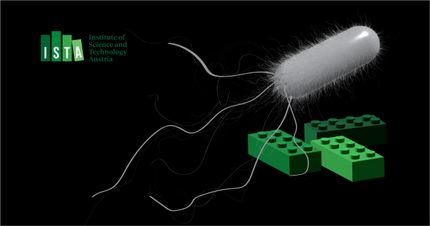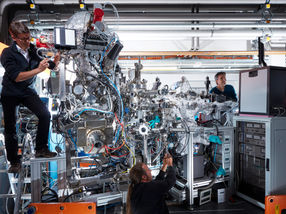Prize for bioconversion of renewable raw materials
Daniel Eggerichs has bacteria produce plastic precursors from paper production waste
Advertisement
Until now, plastics could only be produced using crude oil. In his dissertation at Ruhr University Bochum, Dr. Daniel Eggerichs developed a way to produce precursors for plastics using genetically modified bacteria from paper industry waste. He was awarded the Prize for Bioconversion of Renewable Resources by the German Chemical Society on September 29, 2025. "Daniel has succeeded in establishing new biotechnological approaches for the utilization of lignin building blocks. This now makes it possible to convert natural molecules obtained from wood into versatile synthetic building blocks and thus make a contribution to the sustainability of our society," said laudator Prof. Dr. Dirk Tischler.
Using waste as a raw material
Cellulose from wood is required for paper production. Other components of the raw material remain, including lignin, a wood polymer that gives the tree its strength. "Until now, it has been a waste product that is produced as viscous sludge and burned," explains Daniel Eggerichs. Yet it is the only natural source of so-called aromatic compounds, which are essential for the production of plastics.
In his doctoral thesis, for which Eggerichs received a grant from the German Federal Environmental Foundation, he developed a cell factory that converts the lignin into plastic precursors. To do this, he used the soil bacterium Rhodococcus, which specializes in decomposing plant fibres. He analyzed the enzymes involved and replaced them with more suitable ones in order to ultimately restructure the bacteria's metabolism so that they excrete the desired end product: a precursor for plastics such as polystyrene or PET.
Note: This article has been translated using a computer system without human intervention. LUMITOS offers these automatic translations to present a wider range of current news. Since this article has been translated with automatic translation, it is possible that it contains errors in vocabulary, syntax or grammar. The original article in German can be found here.
Most read news
Topics
Organizations
Other news from the department science

Get the chemical industry in your inbox
By submitting this form you agree that LUMITOS AG will send you the newsletter(s) selected above by email. Your data will not be passed on to third parties. Your data will be stored and processed in accordance with our data protection regulations. LUMITOS may contact you by email for the purpose of advertising or market and opinion surveys. You can revoke your consent at any time without giving reasons to LUMITOS AG, Ernst-Augustin-Str. 2, 12489 Berlin, Germany or by e-mail at revoke@lumitos.com with effect for the future. In addition, each email contains a link to unsubscribe from the corresponding newsletter.































































